Table of Contents
British Columbia Background checks are an important part of ensuring safety and compliance in workplaces and communities. In British Columbia, applicants can now complete a criminal record check in a relatively short time, though many remain unsure about the steps involved and the documentation required.
This guide clarifies the criminal record check process in British Columbia, including both standard checks and vulnerable sector screenings.
Understanding how background checks work is useful whether you are applying for a job in Vancouver or volunteering. A certified criminal record check generally requires two pieces of identification, with one being government-issued.
For employers and organizations, modern background check tools can streamline hiring processes while supporting compliance with legal standards.
Sohi Law Group assists clients with the legal aspects of background checks, including compliance with BC’s Criminal Records Review Program (CRRP). This guide also explains CPIC-linked verification systems and privacy protections under Canadian and international standards.
Understanding Background Checks in British Columbia
Background checks in British Columbia help promote community safety by reviewing aspects of personal and professional history. This can include a criminal record check in Burnaby or a police information check in Vancouver.
What is a Background Check?
Background checks may involve reviewing criminal records and, in some contexts, employment history. For example, a criminal record check in Vancouver shows relevant convictions. Pre-employment screening helps employers make informed hiring decisions.
These checks use information from the RCMP and local police to provide accurate records.
Importance of Background Checks in BC
- Employers use background checks to maintain safe workplaces, especially in schools, healthcare, and childcare.
- Landlords may request checks to screen tenants.
- Legislation, such as the Criminal Records Review Act, requires checks for certain types of employment to protect the public.
Employers must ensure checks are connected to the specific role and use the least intrusive method possible. Results should only be shared when necessary. Declining to participate in a check may limit employment opportunities.
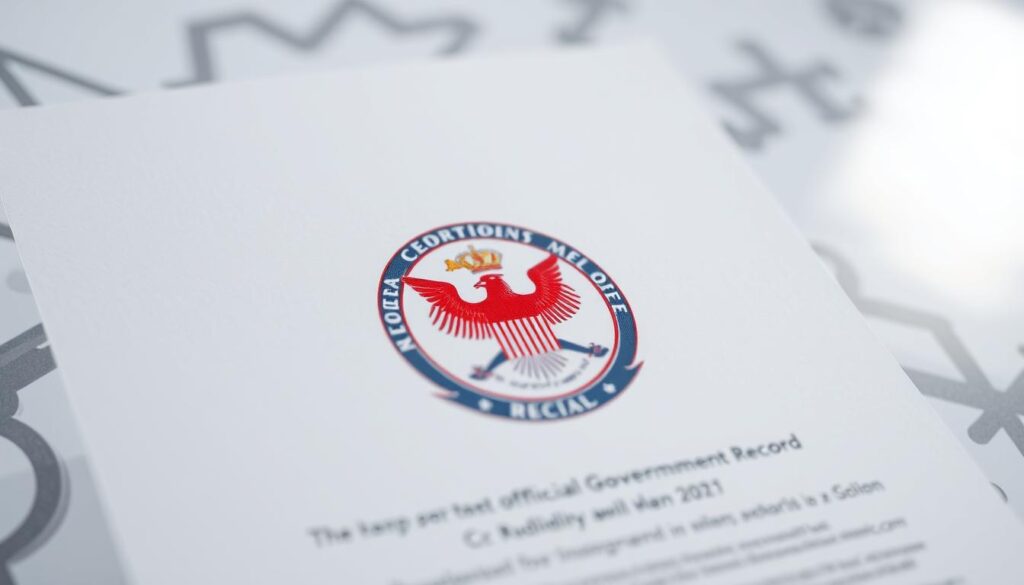
Legal Framework in British Columbia
BC’s Criminal Records Review Act establishes requirements for certain positions. Consent must be obtained before a check, and applicants must be informed of its purpose.
For guidance on legal requirements, applicants and employers may seek legal advice, including from Sohi Law Group.
Types of Background Checks Available in BC
In British Columbia, several types of background checks are available depending on the purpose. A Criminal Record Check (CRC) provides information on convictions and is often used for general employment. A Vulnerable Sector Check (VSC) is required for roles involving children or vulnerable adults and includes additional screening.
A Police Information Check (PIC) may go further by showing pending charges, warrants, or other judicial orders. Each check serves a distinct purpose, and applicants are generally required to provide identification and consent before a search is completed.
ce can help determine which type of check is appropriate.
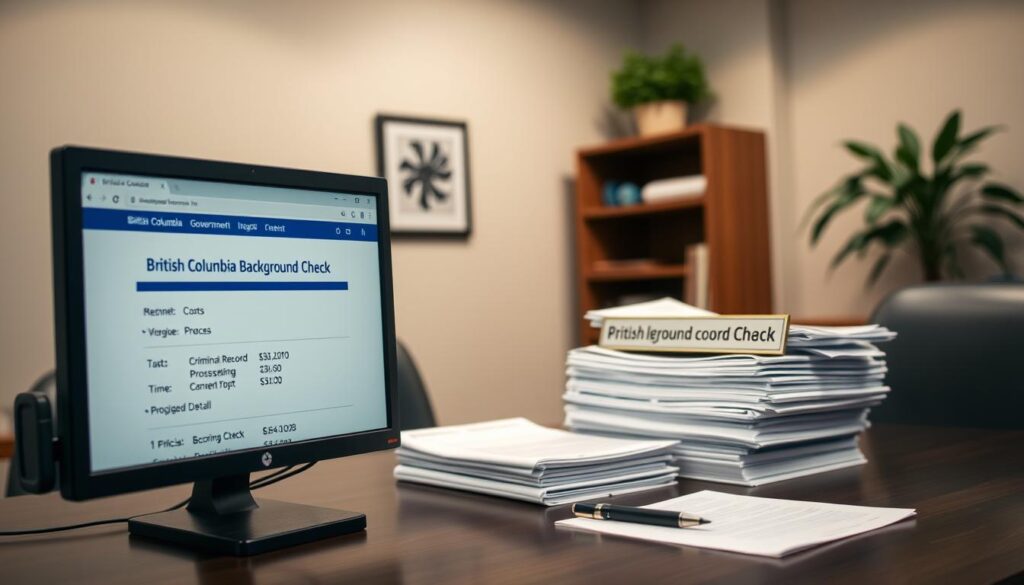
Criminal Record Checks in British Columbia
Criminal record checks in BC are an important tool for employers, volunteer organizations, and regulatory bodies to ensure suitability for certain roles. A Standard Criminal Record Check typically reports convictions from national and local police databases and is often used for general employment. A Vulnerable Sector Check is more detailed and is required for positions involving children or vulnerable adults.
A Police Information Check may include information on outstanding charges, warrants, or court orders. The type of check required depends on the role, and applicants must provide valid identification and consent before the process can begin.
Comparison of Criminal Record Checks in British Columbia
| Type of Check | Purpose | What It Includes | Typical Cost | Processing Time |
|---|---|---|---|---|
| Criminal Record Check (CRC) | Used for general employment, licensing, or volunteering (not involving vulnerable groups). | Shows adult criminal convictions from CPIC (RCMP database) and local police records. | Approx. $28 (standard fee). | Usually a few days to 4 weeks. |
| Vulnerable Sector Check (VSC) | Required for positions involving children or vulnerable adults. | Includes pardoned or suspended sexual offences, in addition to CRC results. | $25 federal fee + local police administration fees. | 10 days to several weeks (may require fingerprinting). |
| Police Information Check (PIC) | Common for safety-sensitive roles or certain volunteer/employment positions. | May include outstanding charges, warrants, judicial orders, and non-conviction records. | Around $90 in Vancouver (varies by jurisdiction). | 3–10 business days, longer if fingerprints are required. |
Employment Verification Process in BC
Employment verification ensures hiring is lawful and fair. The process includes pre-employment screening, reference checks, and compliance with privacy laws.
- Required Documentation: Two pieces of ID (one government-issued, one secondary).
- Employer Rights and Limitations: Employers may request checks after a conditional offer. They cannot deny employment based on unrelated past offenses.
- Candidate Consent: Consent must be clear and informed. Candidates may request copies of their results and must be told how their data will be used.
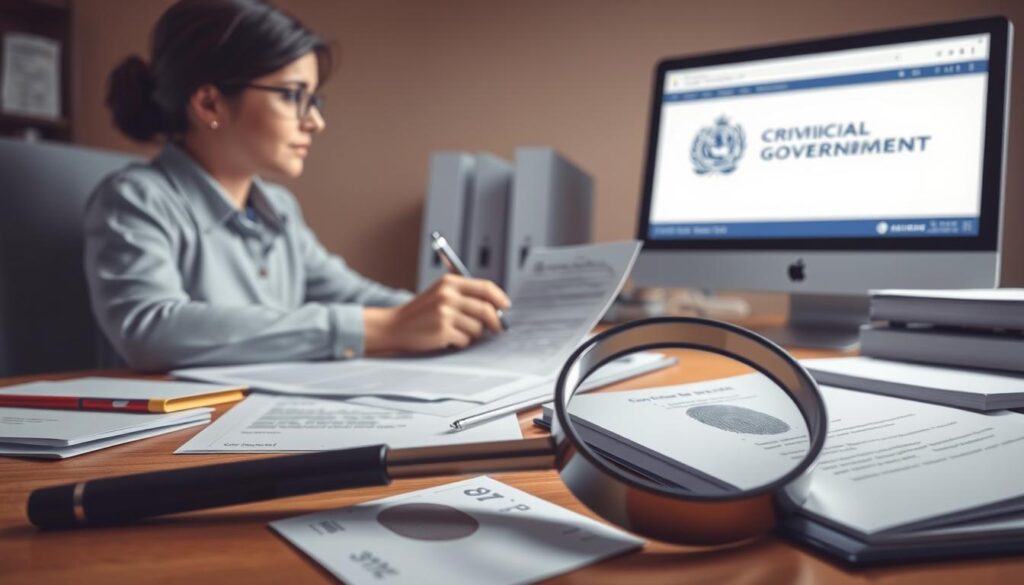
How to Obtain a British Columbia Background Check
Applicants can complete background checks online or in person:
- Online: Using systems like BC Services Card verification or accredited providers.
- In-Person: At RCMP detachments or municipal police stations.
- RCMP Fingerprinting: Required in some cases, such as vulnerable sector checks.
Processing times vary depending on the method and complexity of the check.
Costs and Processing Times
Fees differ based on the type of check:
- Criminal Record Check: Approx. $28 + renewal fees.
- Vulnerable Sector Check: $25 federal fee + local charges.
- Police Information Check (Vancouver): Around $90.
Volunteer positions may be eligible for reduced or waived fees. Applicants should plan for possible delays due to name matches or peak periods.

Understanding Background Check Results
Reports may include:
- Convictions (fines, jail time).
- Non-convictions (withdrawn or dismissed charges).
- Identification details (name, DOB, fingerprints if required).
If errors are found, applicants should contact the issuing agency within 30 days. If unresolved, legal assistance may be appropriate.
Special Circumstances
- International Background Checks: May require fingerprinting and notarized documents.
- Record Suspensions: Suspended records are not disclosed on most checks.
- Vulnerable Sector Checks: Always completed in person at local police stations.
Privacy Laws and Protection of Personal Information
BC’s Freedom of Information and Protection of Privacy Act (FIPPA) regulates background checks:
- Consent must be informed and not coerced (s. 7).
- Data collection must be limited to lawful purposes (s. 26).
- Individuals can correct errors (s. 29).
Employers and providers must take steps to safeguard personal data during the process.
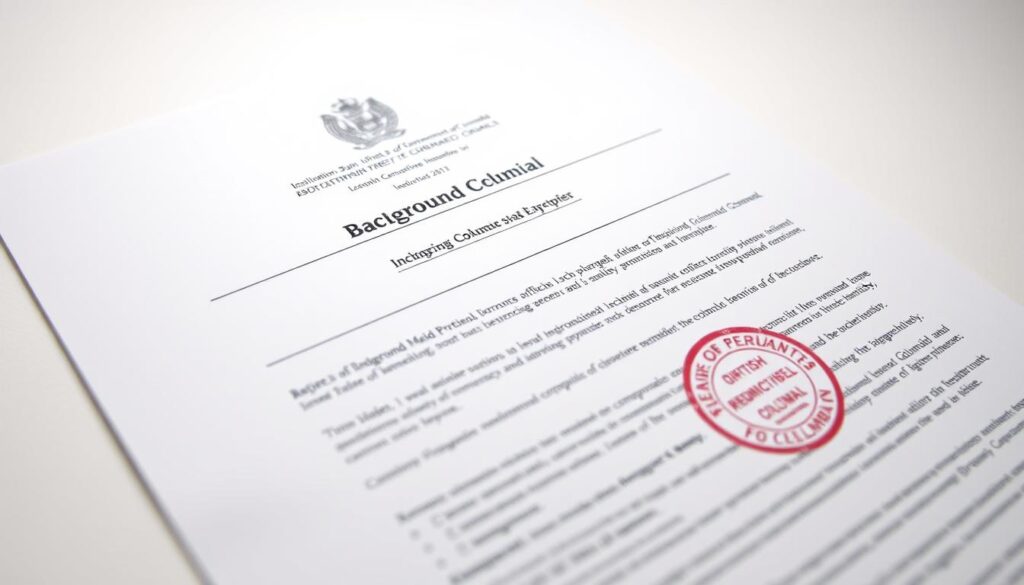
Conclusion
Background checks in British Columbia are designed to balance public safety with privacy protections. Employers must obtain consent and use results responsibly.
For those unsure about which check applies to their situation, or for guidance on privacy and employment law implications, legal advice may be helpful. Sohi Law Group advises clients on compliance with BC’s background check requirements and related legal issues.
Frequently Asked Questions (FAQ)
1. What is a background check in British Columbia?
A background check is a process for reviewing an individual’s history, often focusing on criminal records and sometimes including employment verification. It helps organizations make informed decisions about employment, volunteering, or other opportunities.
2. What types of background checks are available in BC?
The main types are:
- Criminal Record Check (CRC) – shows convictions.
- Vulnerable Sector Check (VSC) – required for work with children or vulnerable adults.
- Police Information Check (PIC) – may include pending charges and judicial orders.
3. How do I get a background check in BC?
You can apply:
- Online through the BC Services Card or accredited providers.
- In person at municipal police stations or RCMP detachments.
Some checks, like VSCs, may require fingerprinting.
4. What identification do I need?
Two pieces of ID are usually required. One must be government-issued with a photo, such as a driver’s licence or passport.
5. How long does it take?
Processing times vary:
- Online checks may be completed within minutes to days.
- In-person or fingerprint checks may take weeks, especially for vulnerable sector roles.
6. How much does a background check cost in BC?
Costs depend on the type:
- Criminal Record Check – approx. $28.
- Vulnerable Sector Check – $25 federal fee plus local charges.
- Police Information Check (Vancouver) – around $90.
Volunteer checks may be free or discounted in some cases.

7. Can an employer require a background check?
Yes, but only if it is reasonably connected to the job. For example, childcare or healthcare roles often require checks under the Criminal Records Review Act.
8. What if there is a mistake in my results?
You can request corrections directly from the police agency or service provider. If the issue remains unresolved, you may seek legal advice.
9. Do background checks show pardoned or suspended records?
Generally, record suspensions prevent those convictions from appearing on most checks. However, vulnerable sector checks may disclose certain pardoned offences.
10. What laws protect my privacy during background checks?
BC’s Freedom of Information and Protection of Privacy Act (FIPPA) governs the collection, use, and safeguarding of personal information. You must be told how your information will be used, and you have the right to request corrections.




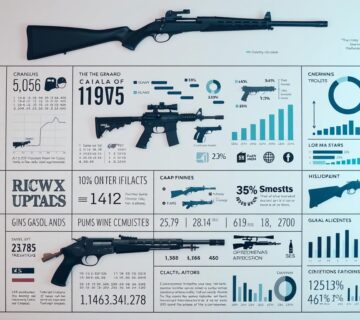
No comment